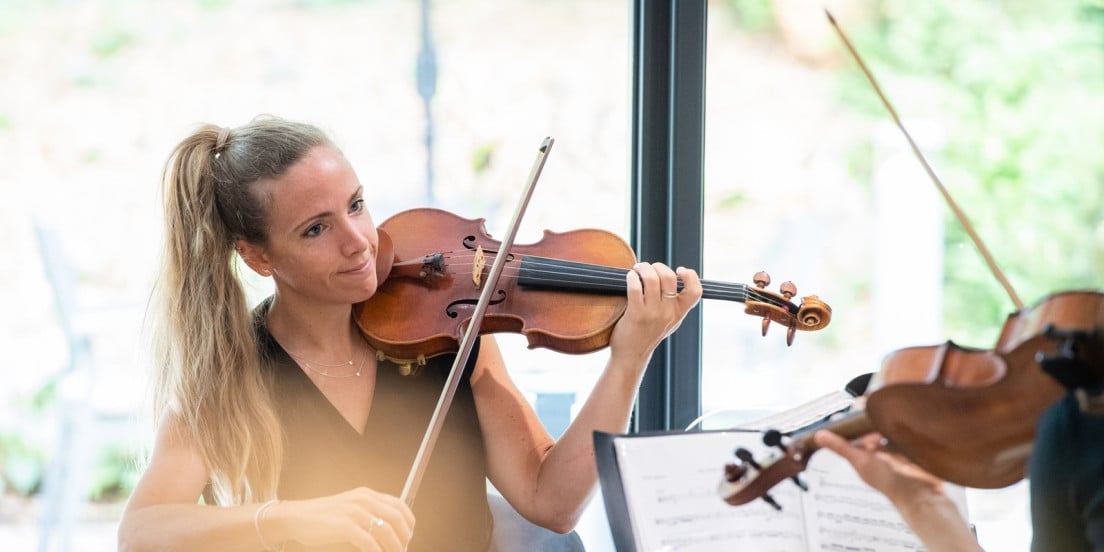The Power Of Music In Later Living
31 July 2024
Posted under: Hobbies & interests

There is a growing appreciation for the profound and positive impact music can have in later life. Whether it is helping us to forge social connections and friendships over a shared interest, or benefitting our mental health through easy listening, music is one of life’s joys to be celebrated - at all stages of life.
The Psychological Benefits of Music
One of the most significant benefits of music in later life is its ability to improve psychological wellbeing. Music can evoke a wide range of emotions, from joy and nostalgia to relaxation and tranquillity.
Reduce Stress and Anxiety
Music has been known to have a significant impact on stress reduction and anxiety management. Listening to calming and soothing music can lower cortisol levels, the hormone associated with stress. This can be particularly beneficial for those navigating any health challenges or the emotional complexities of ageing.
The rhythmic and harmonic elements of music can also slow down heart rate and promote a state of calm, helping to improve an overall sense of wellbeing.
Enhances Mood
The power of music as a mood booster is well-documented. Upbeat and familiar tunes can evoke feelings of happiness, joy and nostalgia. Listening to your favourite songs - from any stage of your life - or engaging in musical activities can bring about a sense of joy and contentment.
Improve Cognitive Function
Music significantly enhances cognitive function by stimulating brain regions related to memory, attention and executive function. Listening to music, particularly classical or instrumental, can help to improve concentration and productivity by optimising arousal states for better focus.
The emotional and motivational aspects of music help to reduce anxiety and depression, thus contributing to an improvement of overall cognitive health and quality of life.
Music as a Social Connector
Music can serve as a powerful social connector, providing opportunities for social interaction and community building, whether that is a shared performance or partaking in a class or group.
Choir and Singing Groups
Participating in a choir or singing group not only provides a sense of community but also encourages regular social engagement. The act of singing together creates a shared experience that can strengthen bonds and create new friendships.
Dance Classes
Music and dance go hand in hand. Dance classes, available at some of our Pegasus Homes communities, offer a fun and engaging way to stay active while also providing opportunities for social interaction. The physical movement combined with rhythmic music can enhance physical health and coordination.
Physical Health Benefits
Beyond the psychological and social advantages, music also offers numerous physical health benefits in later life. Incorporating music into daily routines can encourage physical activity and improve overall physical health.
Exercise and Mobility
Music can be a powerful motivator for physical activity. Whether it’s a structured fitness class or simply dancing at home, music can make physical activity more enjoyable and sustainable.
Sleep Improvement
Many of us struggle with sleep disturbances in later life. Listening to calming music before bedtime can promote relaxation and improve sleep quality. Establishing a bedtime routine that includes soothing music can help signal to the body that it’s time to wind down and prepare for rest.
We host events at our Pegasus Homes communities throughout the year, with live music performances from local artists and musicians. To find out more about specific events near you, visit Our Communities.